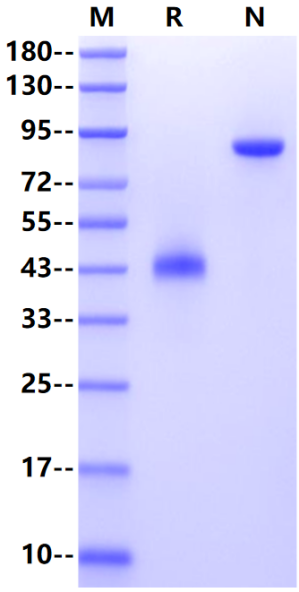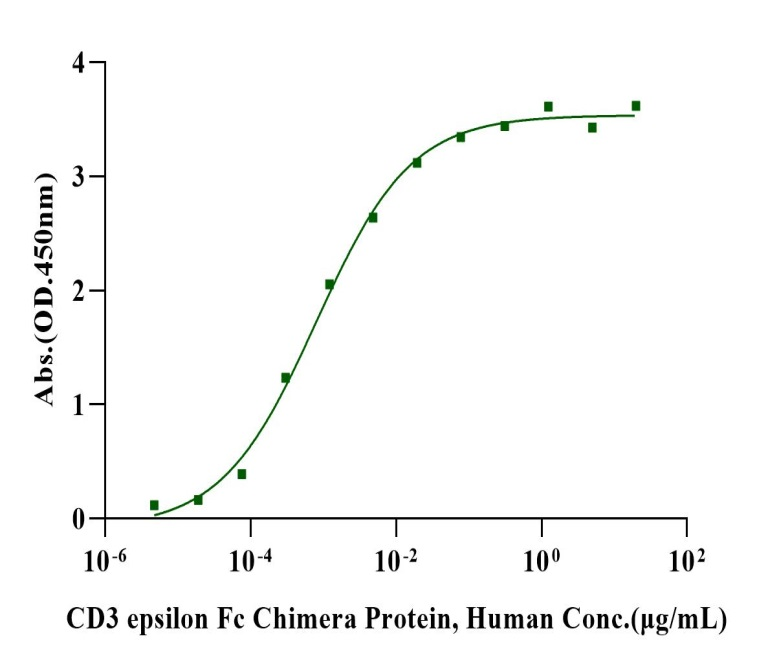Asp23-Asp126, with C-terminal Human IgG1 Fc
41-46kDa
PBS, pH7.4
Reconstitute at 0.1-1 mg/ml according to the size in ultrapure water after rapid centrifugation.
· 12 months from date of receipt, lyophilized powder stored at -20 to -80℃.
· 3 months, -20 to -80℃ under sterile conditions after reconstitution.
· 1 week, 2 to 8℃ under sterile conditions after reconstitution.
· Please avoid repeated freeze-thaw cycles.
1、Fischer A. et al. (2005) CD3 deficiencies. Curr Opin Allergy Clin Immunol. 5(6): 491-5.
2、Deford-Watts L M. et al. (2009) The cytoplasmic tail of the T cell receptor CD3 epsilon subunit contains a phospholipid-binding motif that regulates T cell functions. J Immunol. 183(2): 1055-1064.
CD3 has five kinds of peptide chains, namely γ chain, δ chain, ε chain, ζ chain and η chain, all of which are transmembrane proteins. The transmembrane region of CD3 molecule connects to the transmembrane region of two peptide chains of TCR through salt bridge, forming the TCR-CD3 complex, which is involved in nervous system development and positive regulation of cell adhesion. CD3 acts upstream of or within several processes, including positive regulation of T cell activation; positive regulation of cytokine production; and regulation of signal transduction. CD3 is located in several cellular components, including dendritic spine; external side of plasma membrane; and immunological synapse. Part of alpha-beta T cell receptor complex. CD3 is expressed in colon and hemolymphoid system. Bispecific therapies targeting CD3, so-called T-cell engagers (TCE), belong to the new spectrum of anti-tumor immunotherapies stimulating T-lymphocytes. TCE are unique constructs targeting the MHC-independent CD3 epsilon subunit (CD3e) and a tumor antigen. Some TCE are in advances development, with promising results targeting CD20 and BSMA in lymphoma and myeloma. These successes have relaunched the development of TCE in solid tumors, bringing mixed results so far (notably in terms of tolerance). Still, TCE pave the way to new immunotherapy in tumors considered to be refractory to inhibitors of immune checkpoints such as prostate cancer or colorectal cancer.


Immobilized CD3 epsilon Mouse mAb (SDT-570-36) (Cat. No. S0B2258) at 2.0μg/mL (100μL/well) can bind CD3 epsilon Fc Chimera Protein, Human (Cat. No. UA010199) with EC50 of 0.55-1.14ng/ mL.